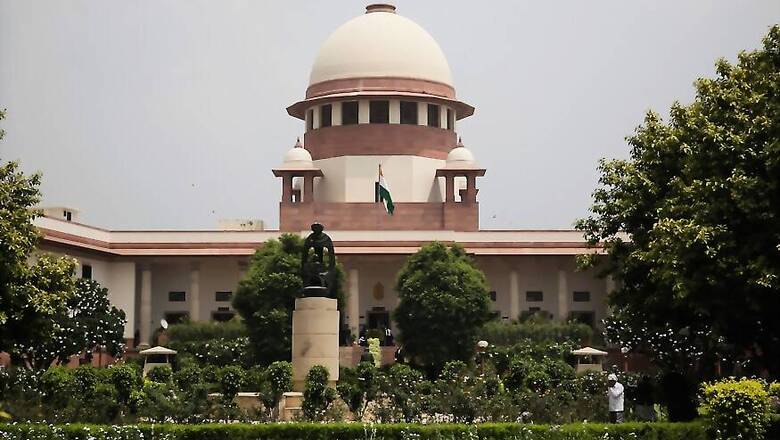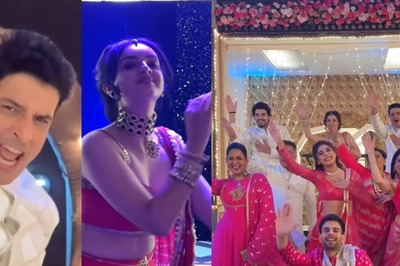
views
Even as the government claimed that “the governance has become virtually impossible,” the Supreme Court on Wednesday did not permit the Centre to fill up 1.3 lakh posts by making ‘ad hoc’ promotions.
A bench headed by Chief Justice of India (CJI) SA Bobde said the court is not going to either modify its April 2019 order or issue any clarification till the matters relating to reservation in promotion for SC/STs are finally heard.
“We will not pass any order on this IA (interlocutory application) right now. We will fix these matters for final hearing after four weeks and then we will see,” the bench told Attorney General KK Venugopal.
The setback to the Centre has come even as it has sought a reconsideration of the top court’s 2018 verdict, which ruled for applying “creamy layer” principle even for Scheduled Castes/Scheduled Tribes (SC/ST) communities, and held that socially, educationally and economically advanced among them should be excluded from the benefits of reservation in government services.
The top law officer, on his part, tried to persuade the bench for permitting the government go ahead with ad hoc promotions for the time being.
“The governance has become virtually impossible. Total number of vacancies as on January 31, 2020 is more than 1.3 lakh. More than 1.3 lakh promotions are held up in 23 departments of the Central government. Please allow ad hoc promotions to be made. It is impossible to carry out governance like this,” Venugopal submitted.
He added that these promotions will be given to candidates belonging to general as well as reserved category candidates purely on the basis of seniority and without creating any equity or rights in their favour.
Venugopal said that the order of ‘status quo’ passed by the bench on April 15, 2019 requires a clarification so that the government could make these temporary promotions in terms of the liberty it had by court orders in 2018 in similar matters.
This request by the Attorney General was, however, opposed by senior advocates Rajeev Dhavan and Gopal Sankaranarayanan, who appeared from the other side.
They said the clarification was not required at all, and that the government may try to overreach the court orders on creamy layer and adequacy under the guise of the present plea. Both senior counsel also found favour with the bench’s views that the matters should be finally heard without any interim direction at this stage.
The court order then recorded: “Let the instant application for clarification be considered at the time of final disposal of the main matter(s). List the main matter along with all connected matters after four weeks for final disposal.”
The bench had passed the order of status quo in April 2019 when the Centre had come in appeal against a 2017 judgment of the Delhi High Court, which gave it three months to implement the reservation in promotion based on quantifiable data on adequacy of representation of the SC/STs, overall efficiency in administration along with competing considerations of backwardness. The high court order meant mass reversion of promotions to thousands of SC/ST employees between 1997 and 2017, compelling the government to file an appeal.
Subsequently, by a Constitution Bench ruling in 2018, the Supreme Court had slightly tweaked its judgment in the M Nagaraj case. It affirmed the reservation in promotion policy but added the 'creamy layer' principle for SC and ST employees too, directing the Centre and states to exclude such employees from the quota benefits.
Further, it held that while there will not be any requirement to collect quantifiable data for the purpose of identification of the backward classes, such data will have to be gathered to ascertain adequacy of representation as well as for overall efficiency.
Later, in December last, Venugopal asked for a review of this verdict by referring it to a larger seven-judge bench. But the court could not hear the issues in detail as yet while the promotions remained stuck due to the status quo order. Similar cases have also come from Maharashtra, Haryana and Tripura which are to be heard together.


















Comments
0 comment